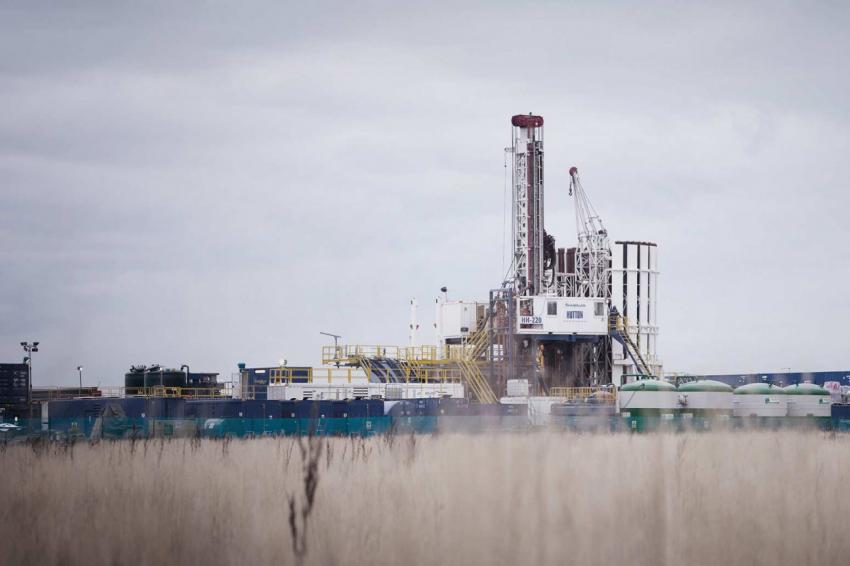UK Imposing Fracking Moratorium
04.11.2019 -
As the UK’s out-of-turn national election got under way, the government on Nov. 3 said it would impose an immediate moratorium on fracking, as drilling for shale could cause too much disruption to local communities through earth tremors. The moratorium on drilling would remain in place “until the science changes.”
The announcement represents a complete about-face for Westminister, which for years has touted fracking as the best means of securing the nation’s gas supplies for the future. It was widely seen as a bid by Prime Minister Boris Johnson to win constituencies in northern England that might go to the opposition Labour party.
Business Secretary Andrea Leadsom said the government could not rule out “unacceptable impacts” on local communities in the future if fracking continued, thereby reversing its own earlier guidance that has allowed the UK’s central planning council to overturn local councils’ rejection of permits.
Some British homenowners are now planning to sue Cuadrilla for damage they say fracking has caused to their property, the Sunday Times reported.
Commenting on the Conservatives’moratorium plans, Labour party leader Jeremy Corbyn said they were “an election stunt to try and win a few votes.” Labour would ban fracking, he said.
Environmental groups across the country have repeatedly protested the government’s efforts to promote shale, most recently saying that the fracking process is too dirty and at odds with Britain’s commitment to reach net zero carbon emissions by 2050.
Scotland already has a moratorium on fracking, which it touts as permanent, though campaigners fear that it might not as watertight enough to withstand reversal by a new government. Ineos last year unsuccessfully sought to overturn the de facto ban in court.
Exploration at a standstill since 2011
Even without being banned, shale gas exploration in reality has been at a standstill throughout the UK since 2007, despite efforts by the industry to restart it. Just two weeks after drilling resumed in October 2018 following a seven-year hiatus, it was halted again by earth tremors at the same Lancashire site where it was interrupted previously for the same reason.
Following the incident, both Ineos and Cuadrilla called on the government to raise the threshold at which drilling activity must be stopped. However, they turned down the volume after an earthquake of 2.9 magnitude subsequently struck a Cuadrilla site, and the Oil and Gas Authority (OGA), which regulates the oil and gas industry, concluded that the probability or magnitude of earthquakes linked to fracking could not be assessed.
In a first hint that all might not be going well for shale, the Department for Business, Energy and Industrial Strategy said the UK’s “world-leading regulations” on earthquakes would remain in place until further notice, “to ensure fracking happens safely and responsibly.” British law requires that drilling be halted and tests conducted when a tremor measures 0.5 or more on the Richter scale.
Recent reports have said Ineos may be looking for shale gas investments in the US. The chemical group imports US shale gas-derived ethane to feed its petrochemical plants at Grangemouth, Scotland, and Rafnes, Norway.
Over the years, hundreds of protesters have been arrested in recent years for trying to block UK fracking sites, and the courts have repeatedly found for the drillers in disputes with environmental advocacy groups and local councils.
In 2017, Ineos won an injunction that would have put protesters in contempt of court if they caused any obstruction to its shale operations or companies in its supply chain. The most wide-ranging of its kind ever issued to the industry and the first to be issued in the absence of a permit to begin fracking, this was partly set aside by the Court of Appeals.





